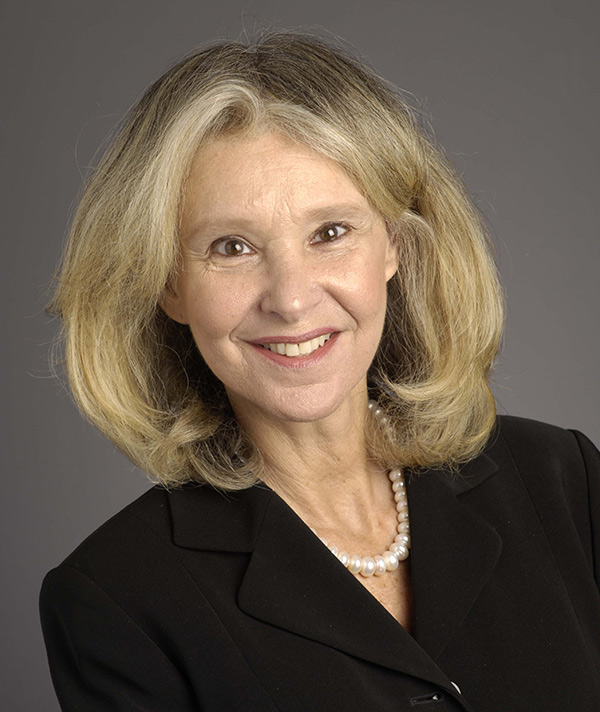National Center for Children & Families

The Challenge
Research has established that investing in the development of children and families pays lifelong dividends, and that failure to do so contributes to intergenerational poverty, reduced health and productivity and other negative life outcomes. Yet vast discrepancies exist in access to support by families and children — particularly in the United States, one of the world’s few economically developed countries that does not provide an array of services for young children, including universal preschool, or a broad network of social services for families.
The Charge
Under the direction of Jeanne Brooks-Gunn, Virginia & Leonard Marx Professor of Child & Parent Development & Education, and Sharon Lynn Kagan, Virginia & Leonard Marx Professor of Early Childhood & Family Policy, the National Center for Children & Families (NCCF) conducts interdisciplinary research to advance the policy, education and development of children and their families in the United States and around the world, and prepares graduate and postdoctoral students to conduct policy research in education, health and psychology.
NCCF is unique in combining multiple disciplines to understand different policy and development approaches to enhance the lives and success of children and families. Its stature is such that the Buffett and Heising-Simons Foundations have funded NCCF to help replicate similar centers in peer institutions and design and advance an entirely new field of study, early childhood policy, which was born and developed at Teachers College.
In a Nutshell

Throughout the world, the pendulum is swinging to support increased investment in young children. Yet we in the United States fall way behind in the amount and range of services we provide and in their quality, equitable distribution, efficiency and coherence.

We want our work to directly benefit children and adolescents, but the ultimate goal is to promote long-term health. That requires applying a life-course lens so that we can understand the early factors that influence mortality and address them up front, which is a far more cost-effective approach for our society.
The Approach:
There are two major strands to NCCF’s efforts to promote the development of children and families:
- A focus on early childhood care and education (prenatal through age 6)
- “Life course” work that follows children and families into adolescence and adulthood
Major Achievements:
Childhood
- Helping U.S. states and more than 70 nations set and implement standards for the development of very young children. Thanks to NCCF work funded by UNICEF, five domains of learning are now accepted globally and adapted by nations to set standards for what children should know and do: physical health and motor development; social and emotional development; language development; cognitive development; and approaches to learning (executive function, curiosity, motivation). Those standards shape the preparation of teachers, curriculum development and more.
- The alignment of different levels of education around key transition points for children. Students’ gains in preschool are often lost in the early elementary grades. NCCF has focused on vertically aligning systems of curricula, teaching and assessment. The Center conducted the first major study on structural alignment — work that gave rise to the national P-3 curriculum movement and countless initiatives around the country to align pedagogy, programs and policies.
- National evaluations of large-scale intervention programs. NCCF co-conducted the first randomized trial of Early Head Start — federally funded programs that provide intensive, comprehensive child development and family support services to low-income infants and toddlers, pregnant women, and their families. Between 1996 and 2001, 45 TC students working at 17 sites coded videotape of thousands of mother-child interactions, ultimately documenting that mothers supported by Early Head Start did more to stimulate their children cognitively and were more sensitive to their children’s cues. The data helped win congressional reauthorization for Early Head Start Funding.
- Systems work. NCCF has led in conceptualizing the key features of an effective system of early childhood education and care and describing how those components must work together. The Center’s Early Advantage project has identified and distilled approaches from six countries — Australia, England, Finland, Hong Kong, the Republic of Korea and Singapore — that are pioneering different but highly effective visions for early childhood education and care. NCCF is assisting nations in Latin America and the Middle East in applying these findings.
- Documenting the effectiveness of home visiting programs. NCCF is currently involved in a 12-state evaluation of five different models of home visiting programs, which provide 160,000 at-risk families with the necessary resources and skills to raise children who are physically, socially, and emotionally healthy and ready to learn. The federal Maternal, Infant, and Early Childhood Home Visiting program was authorized by the Patient Protection and Affordable Care Act of 2010, but its funding has been threatened in recent years.
- Together with Columbia’s School of Social Work, NCCF is evaluating Room to Grow, a New York City initiative that provides mothers with parenting coaching, referrals, and, over the course of three years, $10,000 worth of material goods — strollers, beds, car seats, clothes and toys. More recently, Columbia World Projects — a new initiative that marshals resources across the University to address global challenges such as climate change, wealth disparity and food insecurity — has chosen Room to Grow for potential scale-up, an effort that involves NCCF.
Life Course
- Following teenage mothers into later life. After following teen mothers in Baltimore from the birth of their children through the children’s adolescent years, NCCF researchers and their collaborators declared that the “popular belief that early childbearing almost certainly leads to school dropout, subsequent unwanted births and economic dependence” is “greatly oversimplified, if not seriously distorted.” A substantial majority of the young mothers in the study completed high school, found regular employment and eventually managed to escape dependence on public assistance. Their children’s chances of “making it” significantly improved to the extent that their mothers could overcome the disadvantage of early parenthood — a finding with direct implications for policies around social supports. The finding that teen mothers did better when they lived with their parents or other older relatives and completed high school has been used in federal policies.
- Assessing the impact of neighborhoods on children’s development. With researchers from Harvard and the University of Chicago, NCCF studied 7,000 families in a wide variety of Chicago neighborhoods over a decade to distinguish the impacts of families and neighborhoods on children. The study has clearly established that living in a poor neighborhood is detrimental to children but found better outcomes for youth in poor and near-poor neighborhoods with collective efficacy — the ability of community members to control the behavior of individuals and groups. That finding, replicated in studies in Los Angeles and Stockholm, has prompted the launch of efforts such as The Harlem Children’s Zone and the Obama administration’s Promise Neighborhoods.
- Understanding the impact of “fragile families.” NCCF is a key player in the Fragile Families & Child Wellbeing Study, which since 1998 has followed a cohort of nearly 5,000 children — most born to unmarried parents — to learn how the children fare and how they and their families are affected by policies and environmental conditions. NCCF and its TC students designed the childcare that the youngsters received early on and assessed both it and the children’s attachment to their mothers. More than 7,500 researchers nationwide have used the study’s data. With renewed funding, Fragile Families is now seeing the original cohort of children (now in their early 20s) for the seventh time, obtaining information on family, school, romantic relationships, education and work experiences in early adulthood, as well as biological and psychological indicators of health and well-being.
- Enhancing dual development via human capital-building. Working with the Tulsa Community Action Programs, NCCF, in collaboration with Northwestern University and the University of Texas-Austin, has developed and is evaluating a program to help low-income mothers become certified for jobs in the health industry. Parents receive intensive training while their children receive high-quality education through Early Head Start, Head Start and kindergarten programs. Parents also receive coaching in peer groups. The initiative, called Career Advance, is among the first to align maternal human capital development with children’s academic achievement.
- Evaluating the impact of subsidized housing. NCCF is evaluating an effort by New York City’s Department of Housing Preservation & Development to encourage the city’s developers to create subsidized housing for people living above the poverty line but struggling to make ends meet. In a randomized clinical trial, the Center is comparing outcomes for winners of housing lotteries created by the developers with outcomes for those who were not chosen to receive subsidized housing. The work could have major policy implications for many U.S. cities concerned about housing shortages among the middle class and working poor.
Alumni in High Places:
- Katie Beckmann (Ph.D. ’12), Program Officer for the Children, Families, and Communities program, David & Lucille Packard Foundation
- Lisa Berlin (Ph.D. ’00), Professor, School of Social Work, University of Maryland
- Kimber Bogard (M.A. ’00), Senior Vice President of Strategy and Programs, The New York Academy of Medicine
- Pia Rebello Britto (Ph.D. ’99), Chief and Senior Adviser, Early Childhood Development, UNICEF and Adjunct Professor, Yale University School of Medicine
- Allison Fuligni (Postdoctoral Research Scientist 1996-2002), Professor, College of Health and Human Services, California State University, Los Angeles
- Rebecca Gomez (Ed.D. ’14), Education Program Officer, Heising-Simons Foundation
- Julia Graber (Postdoctoral Research Scientist 1992-1993), Professor and Chair, Department of Psychology, University of Florida
- Anna Johnson (Ph.D. ’10), Associate Professor of Psychology, Georgetown University
- Kristie Kauerz (Ed.D. ’09), Associate Clinical Professor, University of Colorado Denver’s School of Education & Human Development, and Director, National P-3 Center
- Andrea Kent (Expected Ph.D. ’21), Program Officer, Foundation for Child Development
- Dafna Kohen (Ph.D. ’97), Principal Analyst, Statistics Canada
- Tama Leventhal (Ph.D. ’01), Professor, Eliot-Pearson Department of Child Study and Human Development, Tufts University
- Lizabeth Malone (Ph.D. ’08), Senior Researcher, Mathematica Policy Research
- Marisa Morin (Ph.D. ’18), U.S. Senate Senior Advisor on Children and Families
- Jeanne Reid (Ph.D. ’11), Research Scientist, NCCF
- Rebecca Ryan (Ph.D. ’06), Provost’s Distinguished Associate Professor, Department of Psychology, Georgetown University
- Arjumand Siddiqi (Postdoctoral Research Scientist 2005-2006), Canada Research Chair in Population Health Equity and Associate Professor, Dalla Lana School of Public Health, University of Toronto
- Kate Tarrant (Ed.D. ’11), Director of Research, New York Early Childhood Professional Development Institute, CUNY
Recent Funders:
- The Buffett Early Childhood Fund
- The Carnegie Corporation of New York
- Department of Housing and Urban Development
- The Doris Duke Charitable Foundation
- The Julie Fisher Cummings Scholarship Fund
- The Foundation for Child Development
- The Willliam T. Grant Foundation
- The Heising-Simons Foundation
- The Lemann Foundation
- MDRC
- The National Center on Education and the Economy
- The National Institute of Child Health and Human Development
- The David & Lucille Packard Foundation
- The Pew Charitable Trusts
- The Rauch Foundation
- The Spencer Foundation
- State Governments of Washington, Ohio, Mississippi, Colorado, New Hampshire, and North Carolina
- The U.S. Department of Health and Human Services
- The Robert Wood Johnson Foundation